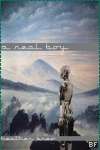I remember when I was a little girl, my mother and I would sit and watch the shuttle launches on tv. She would smile when one got off, and say, “Your grandfather used to work for NASA at the University of Chicago.” It made me so proud. There was a time, before I realized that math is hard, that I wanted to be an astronaut myself. I think every kid of my generation wanted that at some point. Most of us grew up to be doctors or lawyers or actors (like me), but unlike most, I never stopped looking up at the heavens and dreaming.
As I got older, my interests matured with the rest of me. “Apollo 13” came out when I was fifteen, and I watched, rapt, and then bought Captain Lovell’s book and devoured it. I would listen to news reports about NASA missions and saw the ISS being built. I saw nations work together in the vacuums of space, nations that had once had missiles of war aimed at each other, and sometimes still did. And, I started to realize that this awesome thing, this adventure of space exploration, was becoming something largely ignored. The shuttles still went up, but the news relegated them to the end of their broadcasts. NASA turned into little “human-interest” pieces. People stopped looking up the way they used to, dreaming of the stars and marveling at the feat of space travel, the courage and the wonder of it, the incredible achievements we had made and were still making.
I got excited about Constellation. I read about the new Orion capsules and the new LEM, looked at the designs for the new space suits. I cheered when I saw the new lunar vehicle roll by the President’s pavilion at his inauguration. I hoped for a time when we would return to the moon and outward, when we would blaze new trails again. And, I felt the disappointment of the Augustine commission report, and the budget cuts that followed.
I want to express my heartfelt and sincere gratitude to all of you, to all the men and women of NASA who have dedicated their lives to this greatest of adventures. You captured the imagination of a little girl glued to her tv, watching the roar of the Saturn rocket taking another mission into the air. I cried in 1986, and again in 2003, my horror just a fraction of what you all must have felt, and still feel, over Challenger and Columbia. I celebrated in 2009 with the Anniversary of Apollo 11, elated to get to meet Buzz Aldrin and one of my personal heroes, Jim Lovell, when they spoke in Chicago. I felt my heart pull as Charles Bolden cried while he spoke at the anniversary and the retirement of the shuttle program, and announced where each vessel would come to rest.
I have laughed, I have wept, and I have hoped, all the while looking up into the sky.
I know in the months and the years to come, NASA will go on, and it will change. Soyuz craft will take our men and women into space for a while, and one day perhaps Atlas rockets will lift the Orion capsules there from a Florida launch pad again. Mission Control will be a quieter place for a time. The ghosts of Gemini and Apollo, and of the shuttles, will sometimes outnumber the people there. But, I will still look up into the sky and wonder. I will still dream of a time when we will walk again across the face of the moon, and travel onward. And, I will never forget the bravery and the incredible fortitude of all of you, past and present, who have taken us to the stars.
So much time is spent talking of the hardware of the space program: the shuttles, the capsules, the rockets, the station. But, NASA is not made of hardware. It is made of people.
After my grandfather passed away, my mother found commendations he had received for his work with NASA, hidden among his things, awards and thank-yous he had never even spoken of. He was humble about it all; he had just been a small part of a larger program, working on experiments and data, not even in Houston or the Cape, was only present for one of the launches (a highlight of his life). He had done it not for gratitude or lauds, but for the science, for the discovery. He had not seen it as so very extraordinary, what he did. But, my mother told me a story of one day when she was a little girl. He had taken her into the lab on a Saturday morning; he had needed to check on an experiment, and she tagged along. While she was there, he came over and handed her a copper ring, telling her to hold it. A few minutes later, he came back and took it, placing it back on a shelf. He had looked at her, seriously, and said, “Now your fingerprints are going to Mars.”
Space belongs to the world, and the world will continue its exploration. But, for so many years, it has been so very personal for us as Americans. NASA is people, each doing their job quietly, without thanks, making sure our astronauts get home, working together to learn about the vast reaches that extend beyond our little blue planet. As this era ends and we all hope for a new one, I just wanted to say that you are appreciated, you are remembered for all that you have done.
This letter doesn’t say everything I wish it could, and it doesn’t say any of it very well. But in the end, I suppose all it really needs to say is: thank you.
Thank you.


























































